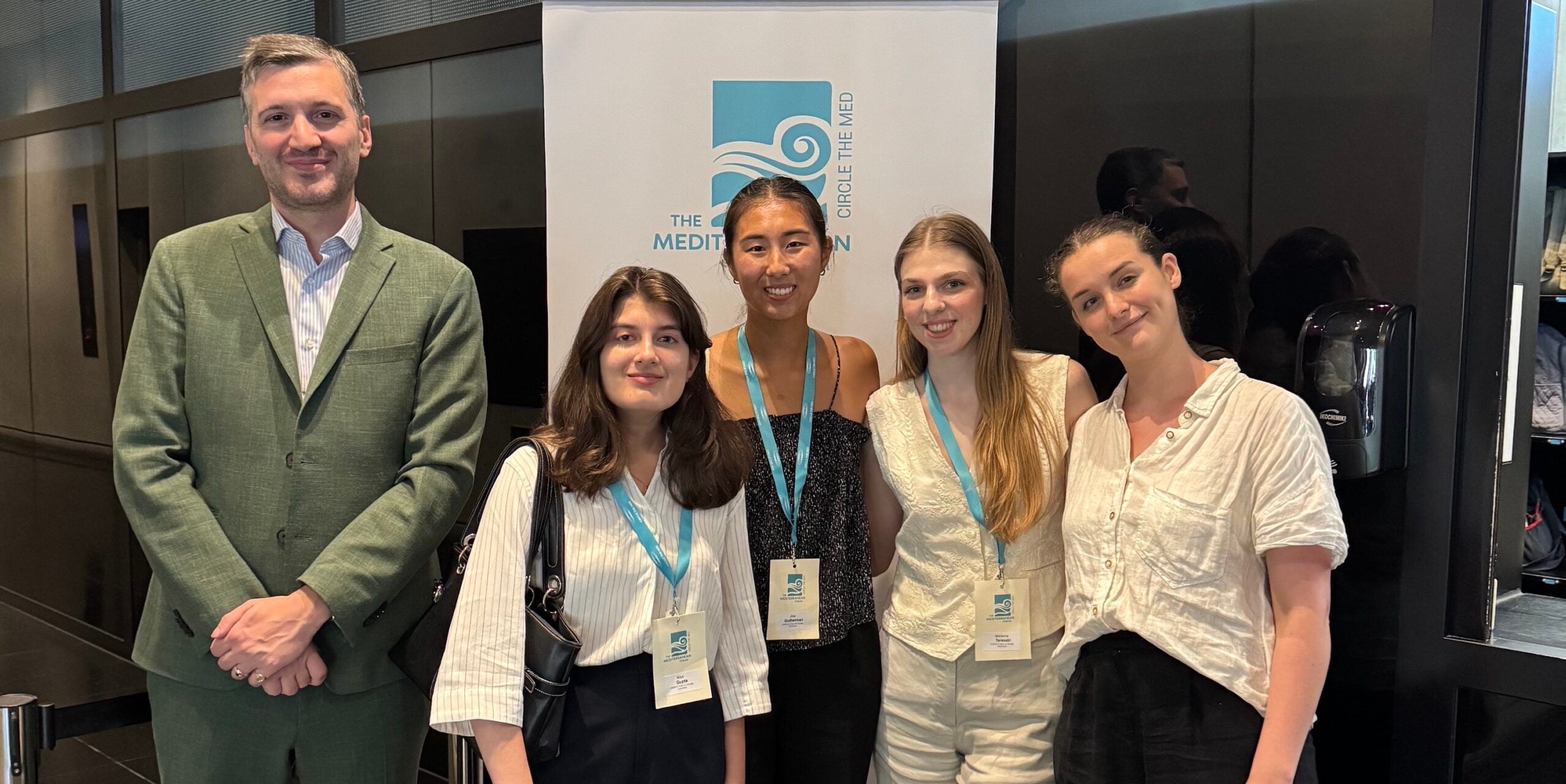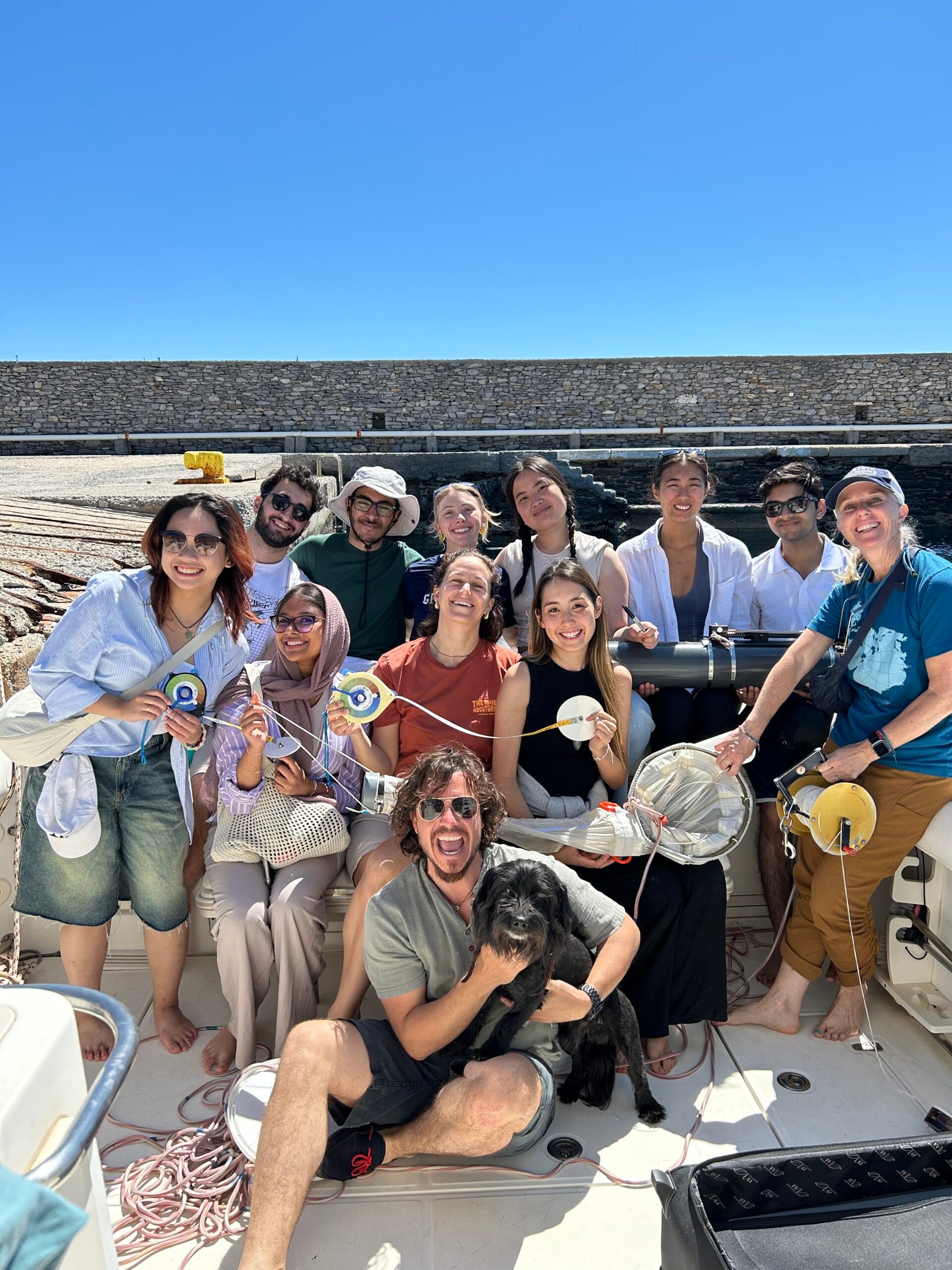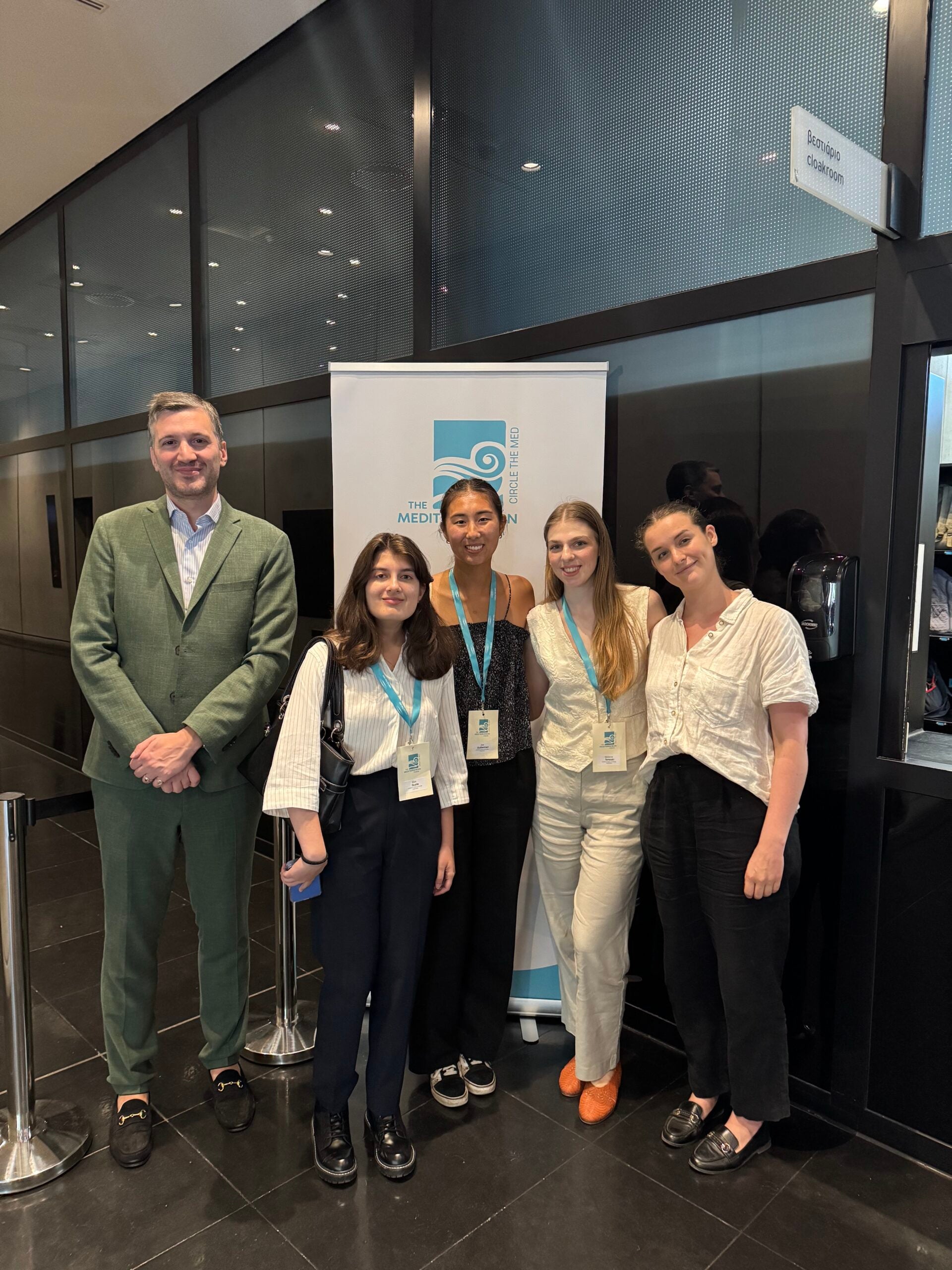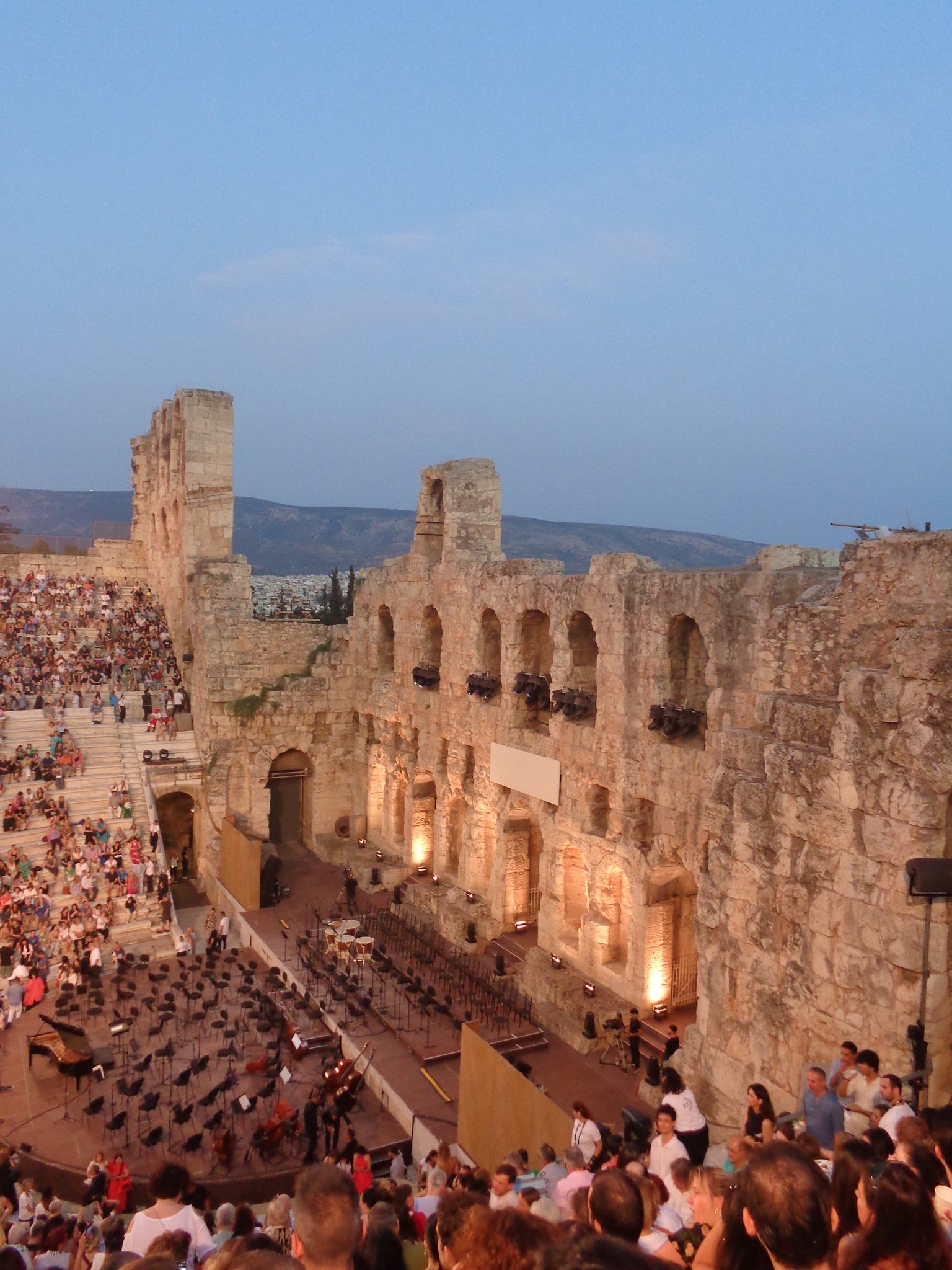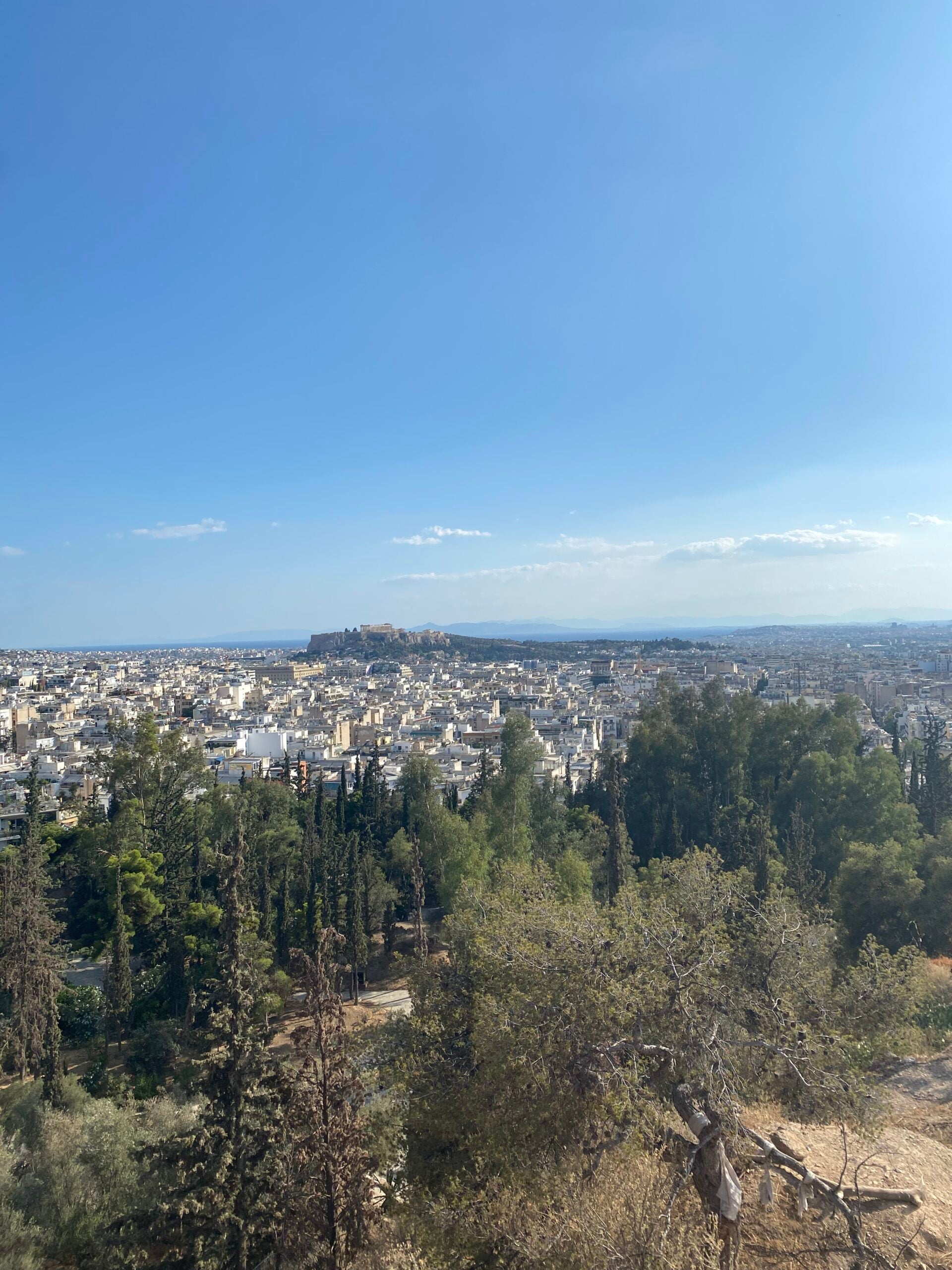Between the conference we attended and the daily office work, my main takeaway was how the Mediterranean is a climate crisis microcosm that demands collaboration among many different groups of people with varying priorities and degrees of development
The Intern Dispatches: Big Ideas and Tiny Moments
Zoe Gutherman (CAS’27), a BS in Environment & Sustainability Student at Georgetown University, reflects on her summer abroad with the Earth Commons Greece.
My participation in the Earth Commons Greece (ECo Greece) summer fellowship began when my professor and co-director of the BS in Environment & Sustainability, Dr. Jesse Meiller, presented an opportunity to engage with a marine remote sensing course and climate change issues in a critical world region. Greece and the greater Mediterranean region possessed much more complexity than I could have conceptualized if not for immersing myself in its culture, way of life, and climate implications for just over two months
The first two weeks were spent with a collection of students and faculty members representing both Georgetown University (Main campus and the Qatar campus) and the National and Kapodistrian University of Athens (NKUA). With five students from each of the three institutions, Dr. Meiller from Georgetown and Dr. Dionysios Raitsos from NKUA, we explored the use of satellite data to assess the health of oceans based on their primary productivity levels. Since I knew this research area would interest me from prior experience, the most surprising aspect was how well we were able to mesh across different backgrounds. We learned about more than oceanography and its implications of climate change; we learned about each other, our cultures, and the community on the island of Andros.
End of carousel collection.
Back in Athens, the other part of ECo Greece’s summer program involved an internship with a local organization. I completed my internship with Dr. Emmanuela Doussis and the UNESCO Chair on Climate Diplomacy. Their three goals connect research, policymakers, and the public by focusing on climate change policy, plan implementation, and education with an emphasis on Southeast Europe. With a small team of climate governance researchers, a Georgetown colleague and I worked toward providing a comprehensive understanding of previous, current, and future climate policies and networks in the Mediterranean region.
It was a privilege to learn more about the place I was living, and that influx in knowledge led to so many more questions about climate diplomacy and the hands-on work UNESCO did with its surrounding community. Between the conference we attended and the daily office work, my main takeaway was how the Mediterranean is a climate crisis microcosm that demands collaboration among many different groups of people with varying priorities and degrees of development. More than just a hotspot of climate change that demands immediate action, this region has the potential to spearhead solutions that successfully address both mitigation and adaptation or that provide indications of alternative paths forward.
End of carousel collection.
The significance of the Mediterranean Sea to its surrounding nations is an example of how powerful a place-based identity can be. As a Mediterranean nation, Greece has a confidence in its identity rooted in its spatial memory. There is so much widespread knowledge regarding its history that the city and its people strike a balance between vibrant character and calmness. Above the bustling streets of the city center, the Acropolis is always visible around the next corner. Similarly, time to spend with friends awaits the end of the workday. I have always valued a balanced lifestyle but being surrounded by a culture that values this as a norm made the adjustment that much smoother.
The limited time we had in Greece compounded my desire to appreciate these tiny moments before they passed, whether they were spent reading a key framework for Mediterranean climate governance or bonding with newfound friends.
Zoe Gutherman (BS-ES ’27)
Not only was I in a new country, but I was doing research in a new field and living in an apartment for the first time. The required level of independence demanded rapid growth and an inward perspective to ground myself. I took solace in the balancing act that my surroundings demanded and tried to focus on the “tiny things” that matter, just as a sign on my way to and from work prodded. The limited time we had in Greece compounded my desire to appreciate these tiny moments before they passed, whether they were spent reading a key framework for Mediterranean climate governance or bonding with newfound friends. I learned so much about myself, Mediterranean climate governance, and this special place over the course of two months, and it could not have been possible without Katerina Downward, the Managing Director of ECo Greece; Drs. Meiller and Raitsos, the course professors; Dr. Doussis, the UNESCO Chairholder; my direct supervisors at the institute; and my colleagues and friends along the way.

